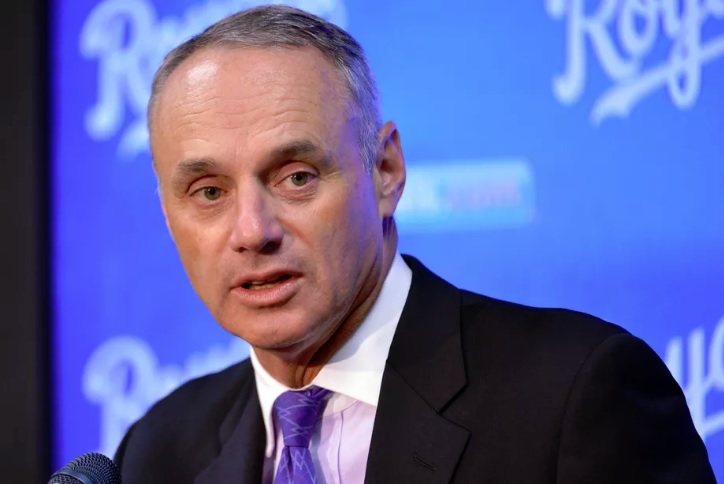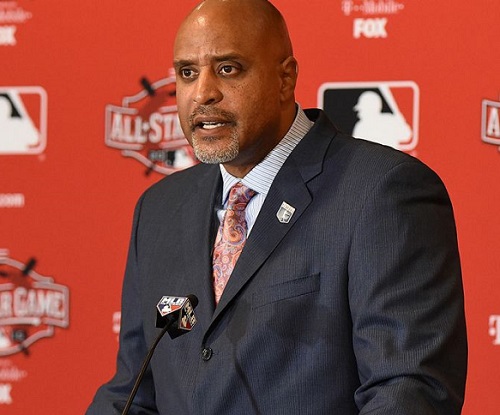The off-season activity with MLB teams has been slow, very slow. Dodgers fans are anxious to learn if Justin Turner and Kenley Jansen will continue in Dodger Blue or will slip through the front office fingers – or pocket book – and perchance feed our greatest nightmare and wind up in black and orange. The Dodger faithful are waiting for a big signing or a team changing trade even at the cost of forfeiting blue chip prospects.
One wonders why the transaction wire has been so quiet. Perhaps it is because the free agent market is experiencing a bit of a down year with few big-name players or players most coveted in certain positions. Perhaps it is because free agents are waiting for others to make the first move so as to set the free agent signing bar as high as possible.
The 2016 Baseball Winter Meetings will take place in National Harbor, Maryland, December 4-8, at Gaylord National Resort & Convention Center. Perhaps everyone is waiting for the winter meetings so general managers, agents and others can deal in a face-to-face situation.
However, the upcoming winter meetings may be facing a significant challenge and that challenge may in fact be in whole or in part responsible for the lack of action on the trade and free agent market since the completion of the World Series.
That challenge is the Collective Bargaining Agreement (CBA) which expires on December 1, 2016. The present agreement became effective on December 12, 2011 and is about to lapse in less than a week. The CBA is exclusively between the 30 Major League Clubs and the Major League Baseball Players Association.

MLB Commissioner Rob Manfred
(Photo credit – Denny Medley)
Article 1 of the Agreement in two sentences specifies the intent and purpose of the Major League Baseball Clubs and the Players’ Association. Skipping around any legalize the Agreement in great detail lays out the terms and conditions of employment of all Major League Baseball Players for the duration of the Agreement. Those terms and conditions in the 295-page document include all money matters, scheduling, grievance procedures, discipline, player health and safety concerns and so much more.
For most players one expects the area of greatest concern in the CBA deals with money matters. Simply put the players want a greater piece of the financial pie. Their share of baseball revenue has dropped from 56 percent in 2001 to 38 percent in 2014, as salaries have not increased at nearly the same rate as television revenues. Therein may lie one of the reasons for the slow pace of free agent signings thus far since free agents went on the market following the World Series. The players are perhaps waiting to see what the new CBA will contain for them and owners are naturally waiting to see what it will mean for them.
Although there has not been much information regarding the CBA discussions leaking out, Fox Sports’ Ken Rosenthal reported last Tuesday that the owners will consider voting to lock out the players if a new CBA is not agreed upon by December 1. If a lockout occurs, no free agent signings or trades would occur until a new CBA can be implemented.
The two front-and-center players in the negotiations are both taking their first kick at the can in their respective positions. Former major league first baseman Tony Clark is in charge of his first CBA as head of the players’ union. MLB commissioner Rob Manfred has led negotiations from the owners’ side before, but this is his first CBA negotiation as commissioner and one can expect he wants anything but a lockout.
The two sides have not negotiated through the media but some sticking points have made their way into the public eye.
Three issues in particular seemed to have slowed the talks to a snail’s pace closing in on a last-minute agreement. The creation of an international draft is a stumbling block while eliminating draft-pick compensation for free agent signings may well be reworked to the benefit of both sides. A third issue may also be resolved to the satisfaction of both sides. That is, a change to the luxury tax/revenue sharing formula.
The greatest impediment to the signing of a new CBA is the proposal of an international draft. The proposed draft would begin in March of 2018 and include 10-rounds that would be held over two days. The new proposition would have players being eligible to be drafted at the age of 18 by the year 2021.
Top players in the Dominican Republic have already spoken out against the proposed draft and are prepared to be more demonstrative in their opposition to the proposal. MLB’s annual Dominican Republic National Showcase was scheduled to take place Wednesday and Thursday (Oct. 26-27). However, the league was forced to announce that it would be canceling the event due to protests from independent trainers and players.
“Due to the lack of cooperation from the independent trainers, the Dominican Republic National Showcase has been cancelled. We apologize for any inconvenience,” the league told its teams, according to Baseball America’s Ben Badler.
Although not an area of contention, both Rob Manfred and Tony Clark have talked about the possibility of returning to a 154-game schedule. It most likely won’t happen simply because the pull of the dollar on baseball decisions trumps player health concerns.

MLB Players Association Executive Director Tony Clark
(Photo credit – Mark Cunningham)
Tony Clark spoke from personal experience: “In looking back from the time I played, to now that I’m watching what these guys are doing, I don’t know how they do it,” Clark told USA Today’s Bob Nightengale. “What these guys are being asked to do with respect to games’ start times, with respect to the travel distances themselves, with respect to performing at an elite level with three days off a month, is a challenge.”
Expanding the active roster by one player to 26 is also on the docket and could help somewhat with the concerns expressed by Clark.
The clock is ticking and everyone with a vested interest is watching. Will the new CBA be signed by the winter meetings beginning on December 4?




 November 26th, 2016 at 7:00 am
November 26th, 2016 at 7:00 am  by Harold Uhlman
by Harold Uhlman  Posted in
Posted in 

My daughter Claudine, said,”What another lockout?. I than told her that it has been 21 years since the last strike, but I’m sure we all feel like it wasn’t too long ago.
1994 strike was the last strike for a reason. For you youngsters who may not know, it canceled the entire postseason.
The fans were fed up and there was outright fan rebellion. I suspect both owners and players were really afraid we wouldn’t come back. I think they understood we didn’t come back for them. We only came back because we loved the game.
None of these issues are insurmountable to reasonable people.
I doubt that players or owners are really content with the situation described by Bumsrap. So, fix it!
Draft pick compensation is simple. Signing team doesn’t lose a pick. Losing team gets a supplementary pick if they offered a QO. OK, that’s settled!
Luxtax/revshare: Just pick some stinking numbers and go with ’em!
OK, that’s done. 128 days and a wake up.
RTR, it was a HUGE BLACK MARK on baseball (1994 strike) Trying to begin the following year with a bunch of Replacement players was even worse.
Bingo on draft pick compensation. Players argue it has made it much more difficult to sign as free agents when signing teams lose a draft pick. What you are suggesting may well be the way it plays out to the satisfaction of the players’ association. It might also be the trade off to get the union to agree to an international draft.
I think one of the reasons to have a QO was because most of these FA were wanted by the teams they were leaving. Teams don’t want to lose a draft pick, well that’s too bad. The losing team has to get compensated for losing it’s player. If they really want a player they shouldn’t worry about losing a draft pick.
I think this is a very good idea and it should not be changed.
You may be alone in your thinking Joe.
It is my understanding that under the “rumored” changes to the QO system, a team will no longer forfeit a draft pick if they sign another team’s QO FA but the team that loses that QO FA will still receive a compensatory first-round pick. (I always get a chuckle at that term because it is no longer the first-round).
I am amazed that so few players have accepted QO’s, especially when the amount is set at the average of 20% of the highest paid players in the game. I mean, these guys are walking away from $17.2 million. I get that they are looking for financial security down the road but really? $17.2 million isn’t secure enough?
GMAFB.
1.5th round?
154 games, 26 active players, leave the revenue distribution as is — works for me.
Gotta get rid of international players getting huge contracts and then playing along side drafted players that are subject to slot money and minimum pay ($504,000 first year)
The scheduling is what needs to be worked on as far as for get away games.. No team should be asked to play on Sunday night, then have to play a game somewhere else the very next day. Just a sample. As far as an International draft, something should be worked out for both sides because a lockout as a result of an impasse with that seems far fetched and no lockout or strike SHOULD EVER BE EVEN THOUGHT OF AGAIN! Do they want to alienate fans and drive the youth further away from the game? I think NOT!
I think the lockout chatter is just that with very little intent to it. There is absolutely no way games will not start on schedule in 2017. Rob Manfred certainly doesn’t want a lockout or strike as part of his legacy. Also as pointed out the strike in 1994 ago was a disaster for the game that should never be repeated.
If an agreement is not signed by December 1 it will hold up free agent signings and trades but in no way will it impact the game on the field in 2017.
Apparently both sides are close to an agreement on the QO thing. Details not known yet however.